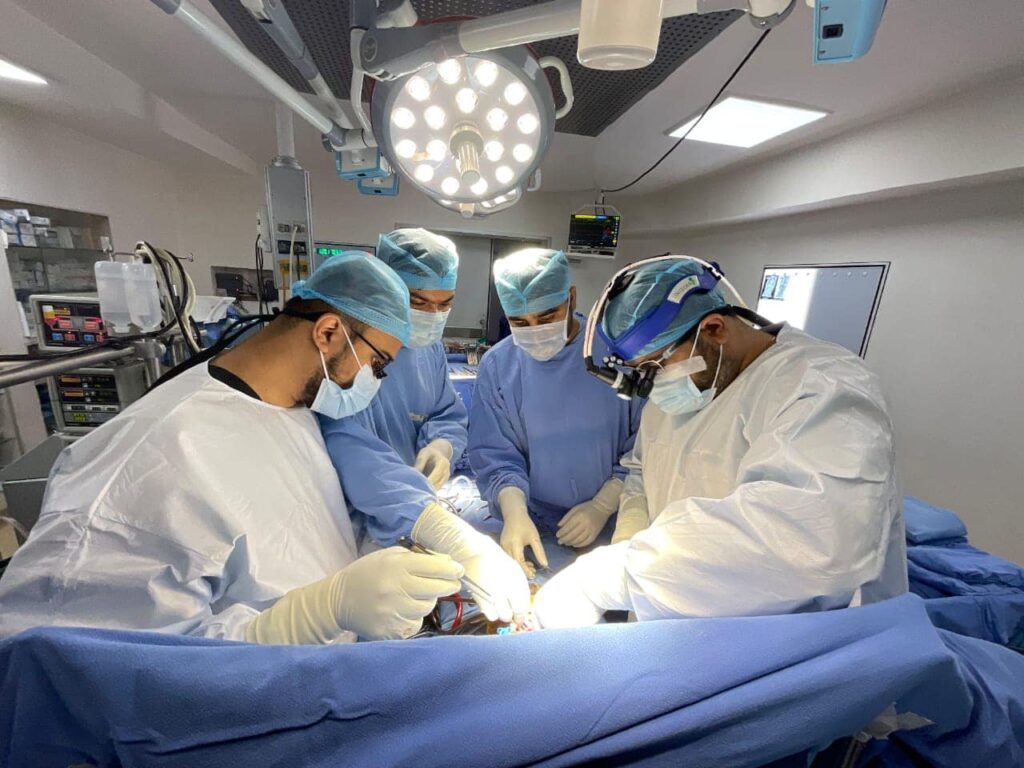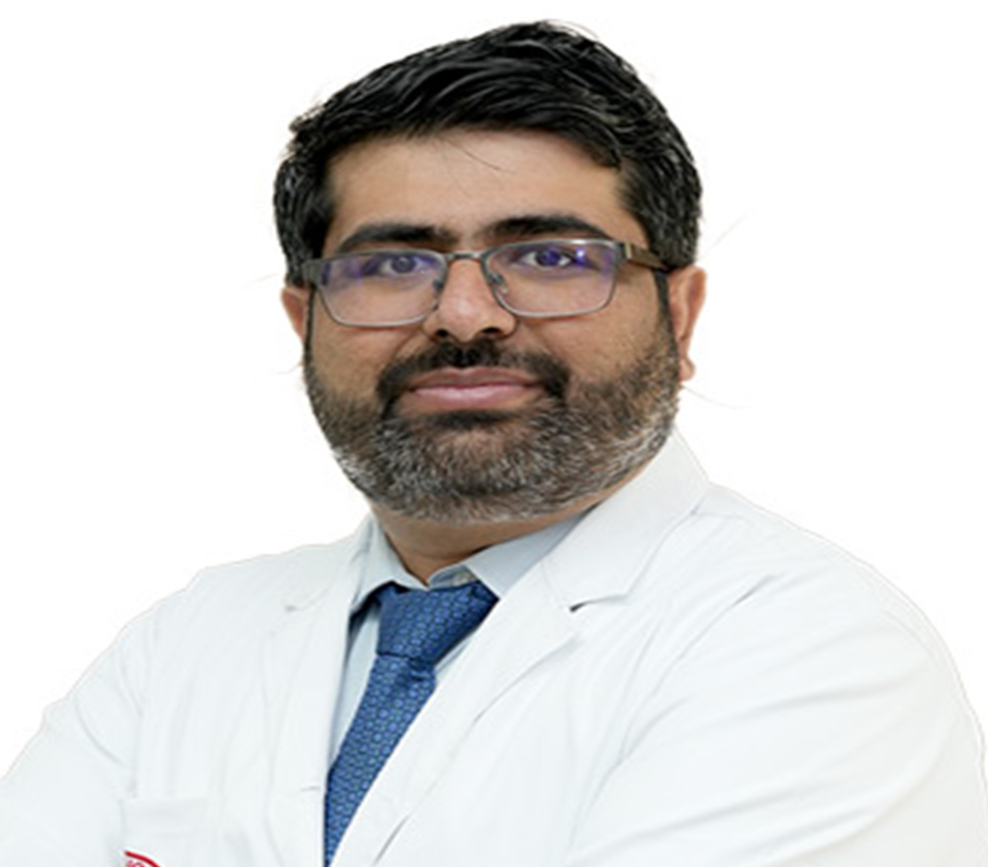🕐 Opening Hours: Mon - Sat : 10.00 am - 4.00 pm
📱+919814836655
✉ info@dryatinarora.com
Off-pump coronary artery bypass (OPCAB) surgery

Off-pump coronary artery bypass grafting (OPCABG or off-pump CABG) is a technique used in coronary artery bypass grafting (CABG) surgery. During this procedure, the surgeon performs the bypass grafting on a beating heart without using a heart-lung machine.
Here are some key points about off-pump CABG:
Benefits:
1. Reduced risk of neurological complications
2. Lower risk of kidney damage
3. Less blood loss and transfusion requirements
4. Shorter recovery time
5. Reduced risk of infection
On-pump coronary artery bypass grafting (CABG) is a traditional technique used in CABG surgery, where the heart-lung machine (cardiopulmonary bypass) temporarily takes over heart and lung functions.
Benefits:
1. Allows for a still and bloodless field, making surgery easier
2. Enables complex procedures and multiple bypasses
3. Provides better myocardial protection
4. Facilitates surgical precision
Indications:
1. Complex coronary artery disease
2. Multiple vessel disease
4. Previous cardiac surgery
5. Severe heart failure
Technique:
1. Anesthesia and monitoring
2. Incision and cannulation (insertion of tubes) for cardiopulmonary bypass
3. Cooling the body to reduce metabolic rate
4. Cross-clamping the aorta and initiating cardiopulmonary bypass
5. Bypass grafting on the arrested heart
6. Anastomosis (connection) of grafts to coronary arteries
7. Weaning from cardiopulmonary bypass
Risks and complications:
1. Neurological damage (stroke, cognitive decline)
2. Kidney damage or failure
3. Bleeding and transfusion requirements
4. Infection (mediastinitis, endocarditis)
5. Cardiac arrhythmias
Recovery:
1. ICU stay (1-2 days)
2. Hospital stay (5-7 days)
3. Pain management and monitoring
4. Gradual return to normal activities
Comparison with off-pump CABG:
On-pump CABG is generally considered more suitable for complex cases, while off-pump CABG may be preferred for simpler cases or high-risk patients.
For post angioplasty/CABG patients
Foods Prefereed
1. Fresh Vegetables:
– Leafy greens like *palong shaak* (spinach), *pui shaak, and **laal shaak*.
– Other vegetables like *jhinge* (ridge gourd), *lau* (bottle gourd), *patol* (pointed gourd), and *begun* (brinjal).
2. Fruits:
– Eat fruits like *komola lebu* (orange), *kola* (banana), *apple, and **pepe* (papaya).
– *Aamra* (hog plum) and *jaam* (black plum) are also good.
3. Whole Grains:
– Opt for *brown rice* or *aatta roti* (whole wheat roti) instead of regular white rice or maida.
– Include *oats* and *daliya* (broken wheat) in your diet.
4. Lean Protein:
– Eat *ilish maachh* (hilsa), *rui maachh* (rohu), and *murgir mangsho* (chicken without skin).
– *Moog dal, **cholar dal*, and other pulses are great for plant-based protein.
5. Healthy Fats:
– Use *mustard oil* or *olive oil* in cooking.
– Eat *badam* (nuts like almonds) and *akher tel* (flaxseed oil) for good fats.
Foods to Avoid:
1. Processed Meats:
– Avoid *chicken sausage, **ham*, and other preserved meats.
2. Fried Foods:
– Limit *tele bhaja* (fried snacks like singara, chop) and *fried fish*.
3. Sugary Foods:
– Reduce sweets like *roshogolla, **chomchom*, and soft drinks.
4. Trans Fats:
– Avoid bakery items like *patisapta, **cake, and **cream biscuits*.
5. Salty Foods:
– Avoid too much *achaar* (pickle), salty snacks like *chanachur*, and processed foods.
Our Treatments
Send Your Enquiry
TREATMENT
Quick Links
WE ARE OPEN
Metro Hospital and Heart Institute, Sector 12, Noida
(Monday – Saturday : 10:00 AM to 4:00 PM)
Copyright © 2024 Dr. Yatin Arora | Designed & Maintain by Online Impact

